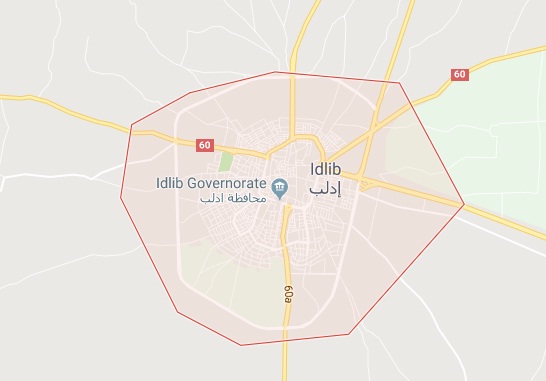
RNA - The deal also says Qaeda-allied rebels must withdraw from that entire area, within a very fast time-frame, with Iranian, Russian and Turkish officials hoping to have it in place by mid-October.
Russia and Turkey are on board, while Iran and Syria are okay with the deal, but Al-Qaeda, specifically Tahrir al-Sham Hay'at (the Levant Liberation Board or the Al-Nusra Front) on Thursday refused to go along with the agreement and leave the state area. Past experiences suggest that’s exactly what they have done in some other areas which led to military confrontations with Syria and its allies. Turkey has vowed to stay committed to this goal as it has no doubt that its failure would ruin the deal. But the question is if it is able to do what it has promised.
According to Fars News Agency, the buffer zone is around 15-25 km, with all heavy weapons to be withdrawn from the area, and Turkish and Russian forces policing the area. Though the exact location of the zone is not fully defined, it is believed to cut substantially through Al-Qaeda’s territory. Turkey is sending troops into this area, preparing to try to enforce the buffer zone. This is while Syria’s Foreign Ministry has welcomed the news, but vowed to continue to fight until the whole country is back under government control. Few points could be said in this respect.
- Iran has welcomed the agreement to create a buffer zone in Idlib province, the last major terrorist bastion in the Arab country. In fact, since the early days of the war, Tehran has always called for dialogue to end the unnecessary conflict. Intensive responsible diplomacy over the last few weeks, pursued in Ankara and Damascus, followed by the Iran-Russia-Turkey Summit in Tehran and the meeting is Sochi, has halted the pending major offensive on terrorists in Idlib, but all engaged actors have underlined their firm commitment to fight terrorist groups, of course. This is an important and major step towards cleansing Syria of the remaining terrorists because Turkey has now vowed to eventually take action against the al-Nusra and other al-Qaeda-affiliated militant groups, meaning that Ankara has now come more on board with the objecitves of Iran and Russia.
- Ending the seven-year violence and bloodshed while ridding the region of terrorism is among the most basic and fundamental pillars of Iran’s foreign policy. The hope is that the results of the Tehran and Sochi summits, which were held within the framework of the Astana peace process, could play an effective role in ending the Syrian people’s suffering and speeding up the expulsion of violence-seeking forces from the country.
- In a joint statement issued at the end of the Tehran talks, the presidents of Iran, Russia and Turkey said the Syria crisis could only be resolved through a negotiated political process, and has no military solution. It is now time for the international community to also step up their diplomatic efforts to resolve the Syria crisis. The three states serve as guarantors of the Astana process, a track of negotiations which have resulted in the return of a succession of militant bastions to the government fold and movement of civilians to safe zones. In these circumstances, there is no need for foreign occupying troops to stay in the country. This includes US occupying troops.
- The strategic province of Idlib hosts several militant groups backed by Turkey and other foreign parties – especially Western states, Israel and their Arab regional allies. The fresh deal has a specific timeframe and is based on the “sovereignty and unity” of Syrian land. It is part of previous agreements which were based on the commitment to liberating all Syrian land, whether from terrorists or from any illegitimate foreign military presence. Under international law, Damascus has the right to go ahead in its war against terrorism until all the Syrian territories are liberated whether by military operations or by local reconciliations. This only means one thing. The days of terrorist groups in Idlib are numbered and their regional-international patrons have no choice but to end their illicit support to these proxies.
- Under the Sochi deal, all heavy weapons should be removed from the demilitarized zone in Idlib. Civilians can stay, but all terrorist groups will be removed. The region must be cleared off from terrorists and a ceasefire shall be enforced. The M4 and M5 highways, which run East to West and North to South through Idlib, linking the strategic city of Aleppo with Damascus and the Mediterranean coast, will remain open to help implement the deal by the end of the year.
Now that Syria is moving towards the end of war on terrorism, it is approaching the start of reconstruction process fast, meaning that the United States is now required to remove Syria from the list of state sponsors of terrorism to allow international economic aid to flow to the country for the first time in decades and substantially increase assistance from international financial institutions to rebuild the post-war country.
In addition to Idlib, all of Syria suffers from problems in infrastructure, economic development, population growth, job creation, and the need to improve governance and reduce local corruption that led to the unrest in 2011, and which are key forces that encourage foreign-backed terrorism and extremism.
The international community’s priorities should be on persuading the United States, Israel and their Arab partners to end their pointless war on Syria that give ISIL and Al-Qaeda terrorist groups so many opportunities to play a spoiler function. It should be to help Damascus and its allies achieve stability and remove the causes of terrorism, not weaponize terror proxy forces.
847/940